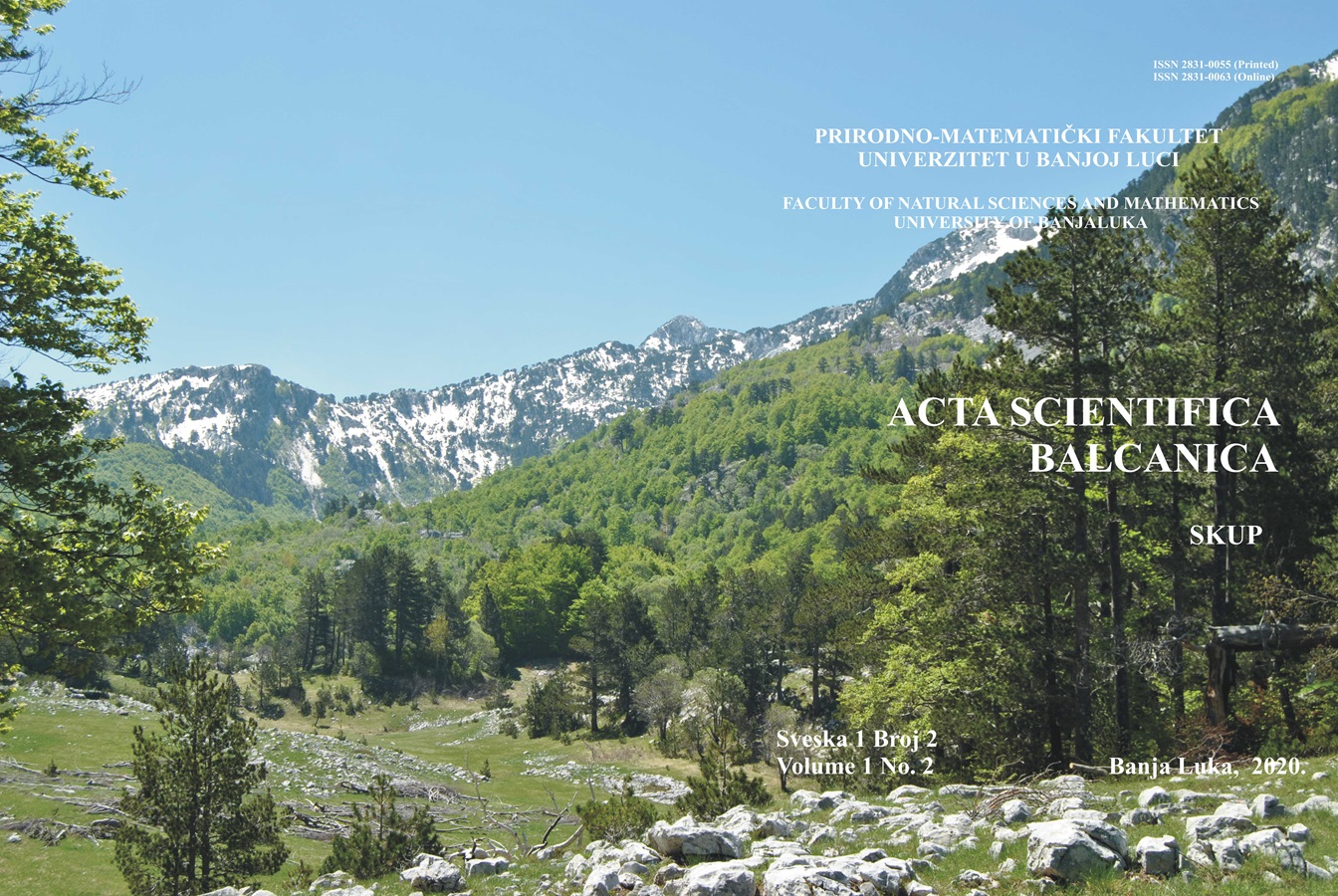ALLELOPATHIC EFFECTS OF RAGWEED ON CORN (Zea mays L.) AND WHEAT (Triticum aestivum L.)
DOI:
https://doi.org/10.7251/SKP201102013MAbstract
Ambrosia artemisifolia (ragweed) is an invasive plant species with severe allergenic effects which quickly detects favorable growth conditions and represents a threat to the quality of plant communities. There are still unanswered questions to the allelopathic effects of ragweed on other species, which further complicates the understanding of its compatibility with other plants in both natural and agricultural environment. The paper monitors the allelopathic effects of the aqueous extract isolated from dry ragweed leaves (10, 5, 2.5 and 1.25%) on the germination and growth of corn and wheat. The aquaeous ragweed extracts reduced the germination of corn and wheat down to 70%. The seedling length was inhibited, especially in high concentrations. Wheat appeared to be more tolerant to the extract effect. Corn suffered a larger inhibition effect in terms of root length and seedlings, which suggested that this species was more sensitive. The obtained results imply that the ragweed should be combated in a timely manner in order to avoid its inhibitory effects on the indicator crops.
